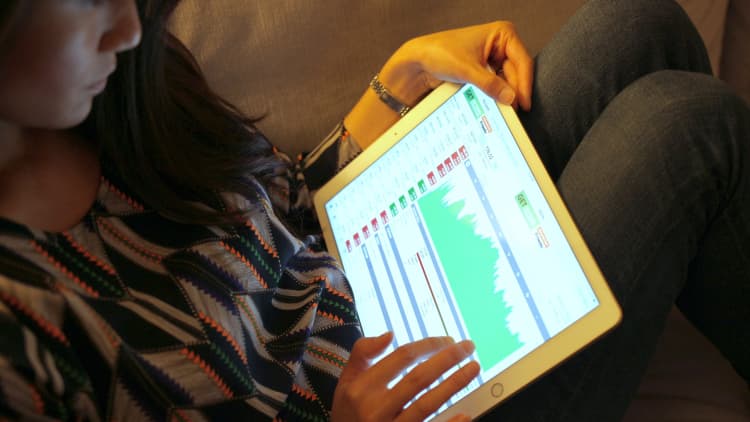The secret to the new normal is changing the way you think about spending.
Instead of going to the barber, do it yourself, like Nate O'Brien, 22, whose hair hasn't been touched by anyone else since January.
"I've gotten pretty good at cutting my own hair," said O'Brien, who lives in Philadelphia and has a YouTube channel with videos about investing, minimalism and personal finance.
"That probably saved me about $30 a month, on average, since I used to go every five to six weeks."
O'Brien says he probably will go back to a barber eventually but for now, he's got it covered.
It's also a future line-item cut: "If I ever need to cut things out of my budget [haircuts] will be one of the first things to go," O'Brien said.
More from Invest in You:
Not a saver? Learn these skills and end your year with a nice stash
Robo advisor and online broker apps make it easier to crack investing
When you're 65 you'll look back and wish you'd opened this account when you were 22
This is a very financially aware generation, says Jonah Stillman, 21.
"We save well and save smart," said Stillman, the co-author of Gen Z @ Work. Blame it on the Great Recession of 2008, he explained, when financial anxiety loomed over this generation's dinnertime conversation with their parents. Where is the next paycheck coming from? Would they have to sell the house?
The take-home message was, be smart about saving, so it's no surprise that Gen Z is quick to adapt to the new world of spending in a pandemic.
Instead of bars
As the months of Covid-19 disruption tick by, most people have altered spending habits and seen others make changes.
O'Brien noticed his friends have mostly cut back on weekend takeout. "A lot of people my age will just pick up a case of beer for $15 and set up some lawn chairs," he said.
This hack saves as much as $80 per person on drinks, he said.
Work pivot
Brian Jung, 23, who lives in Rockville, Maryland, says his own business, producing videos on credit card rewards for financial institutions, felt an almost immediate fallout from the shuttered economy.
"Banks were one of the hardest hit industries," Jung said, and their advertising changes had an impact on his business model.
In turn, Jung had to pivot from producing content on credit cards and changed his own personal financial habits. Jung uses 13 credit cards and was well versed in getting the most out of them.
Jung's content is now focused on stimulus checks and other benefits issued during the pandemic, and he's slashed spending on restaurants, bars and travel — all of which he used to maximize rewards.
Pen perfection
"I do more online shopping than I care to admit," Jung said. His spending is a lot of self-improvement: books, notebooks and journals.
No gym and almost no going out has left Jung with a great deal of free time.
"I fell into a rabbit hole to find the perfect pen to write with," he said. "There's even a Reddit community devoted to pens."
Cutting way down on his social life made him realize how much of his schedule is devoted to hanging out with friends.

Instead of hotels
For example, O'Brien is shifting the way he travels, and he loaded up on camping gear: a hammock, sleeping bag and tent.
"You can go to an area close by [home] and be away from people," he said.
For O'Brien, the savings mean more extravagant travel in the future, like a trip to Antarctica in the next year or two.
"I've been wanting to go," he said, "but it didn't really fit the budget." He estimates the cost at around $10,000.
Instead of flying
O'Brien says he is reluctant to make travel plans because of the possibility of a second wave of coronavirus. He used to advocate strongly against car ownership and for public transportation, yet he recently bought a used Volvo.
He plans to use it for quick trips if things look better in the fall. "For the most part I'm staying local," he said, "Going to the Jersey Shore or Pennsylvania or upstate New York."

SIGN UP: Money 101 is an 8-week learning course to financial freedom, delivered weekly to your inbox.
CHECK OUT: If you invested $500 in 2010 according to Warren Buffett's advice, here's how much you'd have now via Grow with Acorns+CNBC.
Disclosure: NBCUniversal and Comcast Ventures are investors in Acorns.





